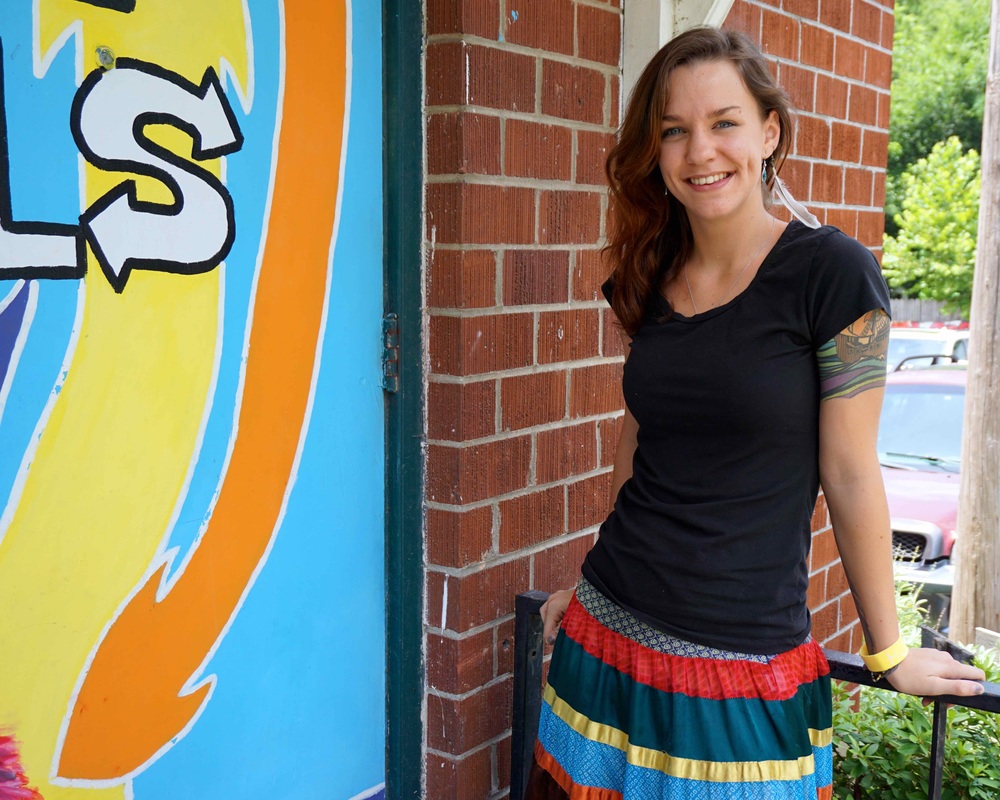“I grew up in Nicaragua as the daughter of missionaries, but my parents divorced when I was nine. After the divorce, my dad and I stayed in contact for a while but then lost touch. I don't know what ever happened to him.
“Alcohol is easily accessible in Nicaragua, and I’d been drinking since sixth grade, so when my mom and I moved back to the States, that continued. I was smoking marijuana occasionally too, but when I got out of high school, got a job, and started working long hours and getting more and more exhausted and depressed, the drug use escalated. First there was cocaine, then Roxies (high-powered painkillers) and finally crack. Sometimes I’d get better for a while, but then I’d be really tired from the long hours at work, and I’d start back again. I ended up losing several jobs and tried twice to kill myself, but I couldn’t quit using---I didn’t know how---and I needed the drugs more and more just to get by.
“I started turning tricks in exchange for drugs. My first pimp told me to take money as payment, never drugs, and taught me how to ‘walk the track’, which is basically streetwalking. At my lowest point, I was smoking $400 worth of crack every day and making good money by working Backpage. Of course I had to turn it over to my pimp every day, but he gave me an allowance from it. Then one day I was robbed at gunpoint by a ‘date’, so I didn’t have the money for my pimp and he kicked me out on the street. Working on my own, I could only make $20-60 per trick, but I needed a lot more for the drugs. That was a huge turning point for me. I gave up trying to live any semblance of a normal life and let go of any hope I had. All I cared about was crack, and I worked really hard every day to make enough to buy it.
“In the last place I lived, I was accused of stealing $20 and almost got killed over it. When that happened, I ran. I left behind everything I owned and called my sister. She took me to rehab---that was two months ago---and then my mom found the community living program I’m in now. I don’t mind talking about this because I want people to realize that you can’t tell what a person is dealing with just from how they look on the outside. You can’t tell what people have been through. But no matter what it is, no matter what you’ve done, there is help out there somewhere if you want it badly enough.”
“Alcohol is easily accessible in Nicaragua, and I’d been drinking since sixth grade, so when my mom and I moved back to the States, that continued. I was smoking marijuana occasionally too, but when I got out of high school, got a job, and started working long hours and getting more and more exhausted and depressed, the drug use escalated. First there was cocaine, then Roxies (high-powered painkillers) and finally crack. Sometimes I’d get better for a while, but then I’d be really tired from the long hours at work, and I’d start back again. I ended up losing several jobs and tried twice to kill myself, but I couldn’t quit using---I didn’t know how---and I needed the drugs more and more just to get by.
“I started turning tricks in exchange for drugs. My first pimp told me to take money as payment, never drugs, and taught me how to ‘walk the track’, which is basically streetwalking. At my lowest point, I was smoking $400 worth of crack every day and making good money by working Backpage. Of course I had to turn it over to my pimp every day, but he gave me an allowance from it. Then one day I was robbed at gunpoint by a ‘date’, so I didn’t have the money for my pimp and he kicked me out on the street. Working on my own, I could only make $20-60 per trick, but I needed a lot more for the drugs. That was a huge turning point for me. I gave up trying to live any semblance of a normal life and let go of any hope I had. All I cared about was crack, and I worked really hard every day to make enough to buy it.
“In the last place I lived, I was accused of stealing $20 and almost got killed over it. When that happened, I ran. I left behind everything I owned and called my sister. She took me to rehab---that was two months ago---and then my mom found the community living program I’m in now. I don’t mind talking about this because I want people to realize that you can’t tell what a person is dealing with just from how they look on the outside. You can’t tell what people have been through. But no matter what it is, no matter what you’ve done, there is help out there somewhere if you want it badly enough.”

 RSS Feed
RSS Feed